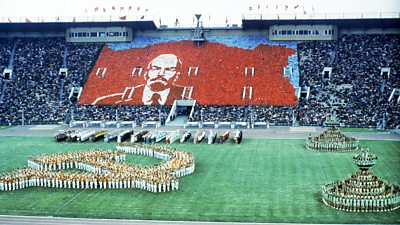The Cold War was the defining global conflict of the second half of the twentieth century. Fought across multiple terrains, the "soft power" of international broadcasting placed the 91�ȱ� on the frontline of the information war.
Explore the role the 91�ȱ� played in communicating our understanding and experience of the Cold War, with the help of unique oral history interviews with those involved – from World Service foreign language journalists and correspondents in the field to directors-general and strategic managers.
Curated by Emeritus Professor David Hendy and Dr Alban Webb, University of Sussex; and John Escolme, 91�ȱ� History.
-

The Long War
Between 1939 and 1991, the experience of World War and Cold War helped shape the journalistic and diplomatic significance of the 91�ȱ� World Service. -
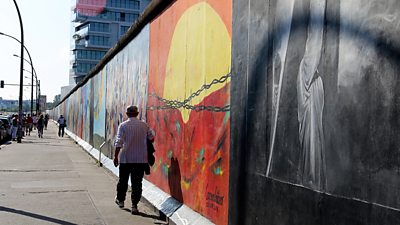
Iron Curtain
How did the 91�ȱ�’s response to the descending Iron Curtain shape its Cold War broadcasting style? -
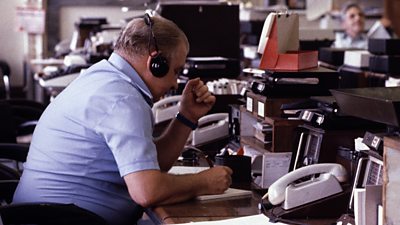
91�ȱ� Monitoring in Wartime
Established at the outbreak of the Second World War, the 91�ȱ� Monitoring Service continued to be a vital component of the 91�ȱ�’s journalistic work during the Cold War. -

Letters without Signatures
During the Cold War the 91�ȱ� German Service was a vital means of 'projecting Britain', and broadcast a nightly programme specially targeted at listeners behind the Iron Curtain. -
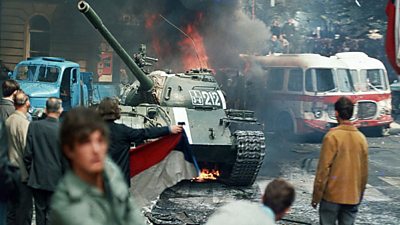
Uprisings
Within the space of one month in the autumn of 1956 flashpoints threatened to destabilise both Eastern and Western bloc alliances and threatened the future of the 91�ȱ�. -
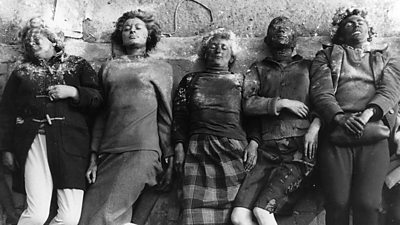
The War Game
The threat of thermonuclear destruction placed Britain’s civil defence plans, and the 91�ȱ�, at the heart of public debates about the Cold War. -
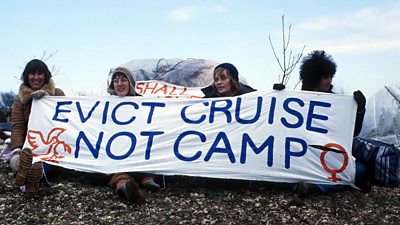
Cries for Peace in the Nuclear Age
The Cold War sparked multiple peace protests in the UK: from Bertrand Russell and the Campaign for Nuclear Disarmament, to the Greenham Common Women’s Peace Camp. -
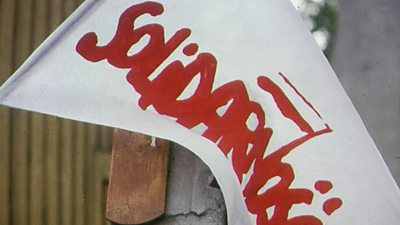
Solidarity
In the 1980s the Polish Solidarity movement gained global media attention. And it did so with a little help from its friends in the 91�ȱ� World Service. -

Collapse
The fall of Soviet communism and the end of the Cold War was a seismic shift in global history. It also posed challenging questions about the future of 91�ȱ� services to Europe, once the Iron Curtain was gone. -

Music of a Revolution
Our video covers some of the key TV moments of the Cold War between 1947 and 1989, with music that inspired a generation. -
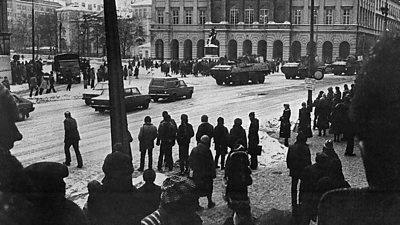
Share your memories
What role did the 91�ȱ� play in your life during the Cold War, and how did its broadcasts shape your perception of events at the time? Share your thoughts and ideas here. -
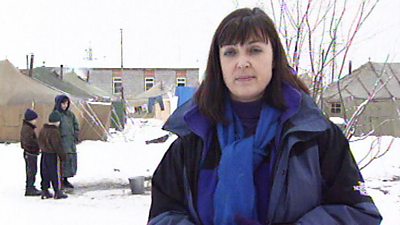
Background to the project
Bridget Kendall MBE, former 91�ȱ� Moscow Correspondent sets the scene for this collection, reflecting on her own career during a period of extraordinary change in the region.
Editorial Note
The 91�ȱ� and the Cold War collection contains excerpts and programmes from 91�ȱ� services at specific moments in time. The material should be viewed in this context and with the understanding that it reflects the attitudes and standards of its time – not those of today.
